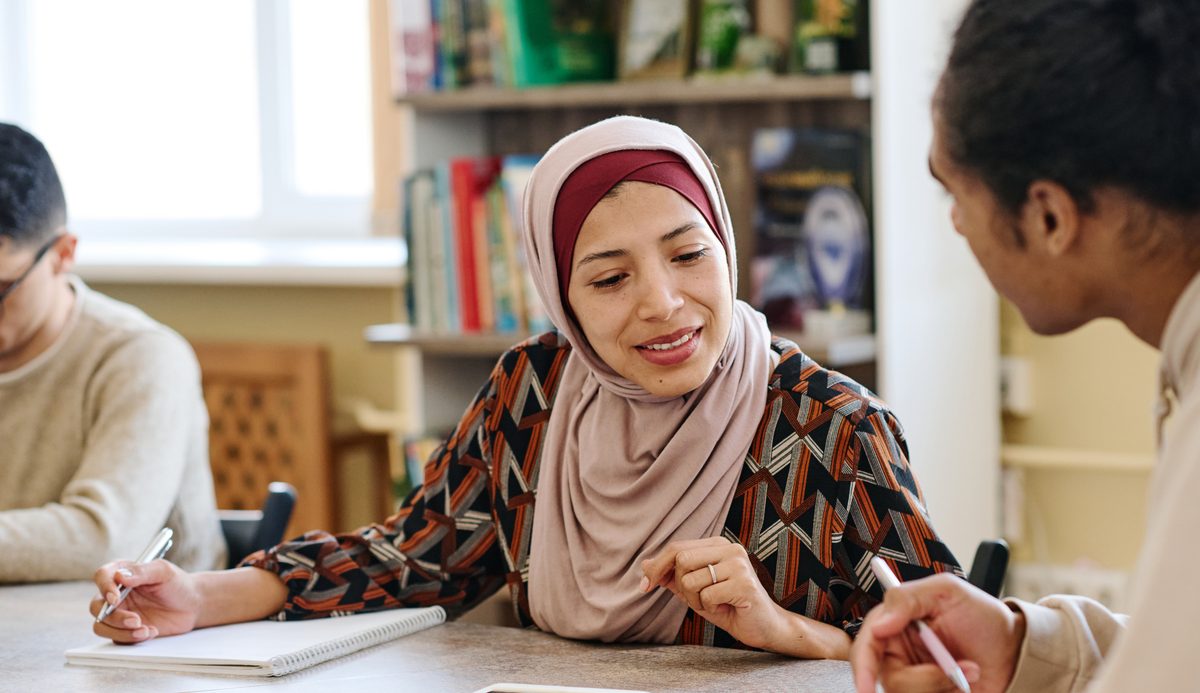Career professionals are advocates. To advance equity, we must embrace this essential role
|
Getting your Trinity Audio player ready...
|
In an article I co-wrote for CareerWise with my colleague Sonam Wangmo, titled “Capitalist language in career services harms practitioners and participants,” we critiqued the increasing tendency in career development to adopt business-driven terminology like “networking” and “selling yourself.” These terms shift the focus away from relational, human-centred approaches toward commodification, leaving little room for deeper engagement with the systemic barriers many face. By avoiding the word “advocacy” in career development, we allow those barriers to persist unchallenged. The truth is, at the heart of our work in the career development sector, we are all advocates – not merely facilitators of career growth but defenders of equity, inclusion and systemic transformation.
I learned this firsthand while working as a facilitator in a non-profit organization that supported youth with developmental disabilities in navigating post-secondary academics and job outreach. Our mission was clear: support these young people to succeed in environments that were often not designed for them. Yet, during team meetings, my boss advised us to avoid the term “advocacy.” She believed it made funders and external stakeholders uncomfortable, and that it sounded too political. So, we rephrased our work as “support” or “guidance.” However, what we were doing was advocacy – creating space and fighting for the rights of students who often faced systemic neglect.
In another role as a literacy outreach co-ordinator, I encountered a similar sentiment. My work involved connecting individuals, often immigrants, with literacy programs and conversation circles that would help them build critical skills for their personal and professional lives. Again, I was urged to avoid the word “advocacy.” We were supposed to frame our efforts in more neutral, less confrontational terms. But advocacy is exactly what was needed. We weren’t just teaching literacy; we were challenging the systemic inequities that made accessing education so difficult for so many people.
Don’t miss the other great articles in our Advocacy and Career Development series:
- The Beyond Decent Work Playbook: Level up your career development advocacy
- 10 resources to support career professionals in employer advocacy
- Achieving against the odds: How a small team drove big change for New Zealand career development
- Resources to fuel your government advocacy to amplify career development
What is advocacy?
The term advocacy stems from the Latin advocare, which means “to call to one’s aid.” Originally used as a legal term, it referred to someone who spoke on behalf of another in court. Over time, advocacy has come to encompass a broader range of actions that centre around standing up for those who are marginalized, oppressed or otherwise in need of support. At its core, advocacy is about empowerment. It’s about amplifying voices that have been silenced and dismantling the barriers that prevent individuals from achieving their full potential. Advocacy, however, is not activism. While activism – as Brazilian philosopher Paulo Freire reminds us – risks becoming “empty” without dialogue, advocacy is where people come together at the table, engaging in meaningful, productive conversations that push for systemic change with both empathy and purpose.
In the career development world, this means more than simply helping individuals craft resumes or prepare for interviews. It’s about addressing the deeper, systemic issues – whether they are rooted in economic inequality, disability, race, gender or other forms of discrimination – that keep people from accessing the opportunities they deserve.
Advocacy and career development: A necessary intersection
The capitalist language that Sonam and I critiqued in our article is not just a matter of semantics. When we focus too much on terms like “networking” and “selling yourself,” we risk losing sight of the fact that many of the individuals we serve cannot simply “sell” themselves into a job. The playing field is not level, and the barriers they face (for instance, lack of access to education, resources or even the basic ability to navigate the job market) cannot be overcome with slick marketing techniques.
“The fear of using the word ‘advocacy’ was pervasive, particularly in non-profit settings where funding often came from sources that preferred neutrality. Yet, without advocacy, the systemic issues would remain unaddressed and the people we were serving would continue to struggle.”
I once worked with a student who had a developmental disability and struggled to fit into the traditional post-secondary system. Their family was overwhelmed by the complexity of navigating educational accommodations, and despite their capabilities, they were being left behind. My official role was to provide academic support, but how could I do that if the student didn’t even have the basic accommodations they needed to succeed in class? My work quickly turned into advocacy – contacting administrators, meeting with disability services and negotiating for the necessary adjustments to give the student a fair opportunity.

In a past role as literacy outreach co-ordinator, I worked with individuals from immigrant and refugee communities who faced significant language barriers, limited access to technology and cultural misunderstandings that hindered their ability to access essential services. What they needed wasn’t just “guidance” or “support” – and certainly not the noise of well-intentioned protests. They needed someone to actively fight for their right to fully participate in society – to challenge the systemic obstacles that were preventing them from succeeding.
In both cases, the work I was doing was advocacy, but it wasn’t always labelled as such. The fear of using the word “advocacy” was pervasive, particularly in non-profit settings where funding often came from sources that preferred neutrality. Yet, without advocacy, the systemic issues would remain unaddressed and the people we were serving would continue to struggle.
In my PhD dissertation, “A Way Towards an Education for the Communal Self,” I explore the concept of the communal self – a framework that emphasizes our interconnectedness and interdependence. Advocacy, according to this model, is not a choice but a fundamental responsibility that we have toward one another as communal beings. When we advocate for someone’s right to education, employment or fairness, we are not just helping them; we are reinforcing the fabric of our shared humanity, making our society stronger and more cohesive.
Beyond activism: The power of advocacy and meaningful conversation
Career development professionals, educators and non-profit workers must embrace advocacy as a core responsibility in our roles. It is not enough to help individuals simply fit into existing systems; instead, we must recognize the need to challenge and transform those systems to be more inclusive, equitable and accessible. Advocacy means speaking up when we see injustice, challenging exclusionary practices and negotiating for policy changes that address the root causes of inequity. We must also ensure that individuals have the resources, support and opportunities they need to succeed.
So, let’s stop being afraid of the A-word. Let’s reclaim advocacy for what it truly is: a commitment to equity, justice and the collective well-being of all. In career development, in non-profits and in government services, advocacy is not just an option – it is a necessity. By embracing it, we can create a more human-centred approach that moves beyond merely helping individuals survive within inequitable systems and focuses on transforming those systems to better serve everyone.




